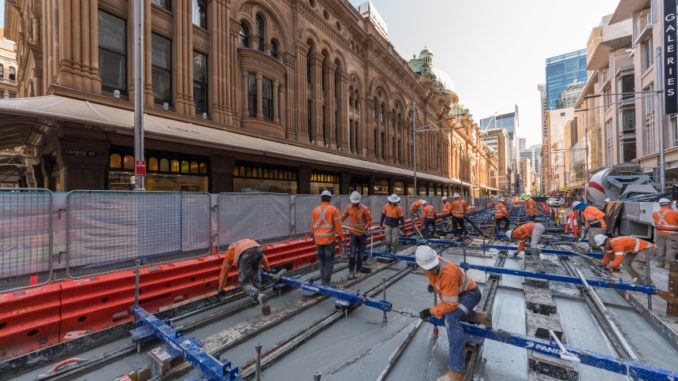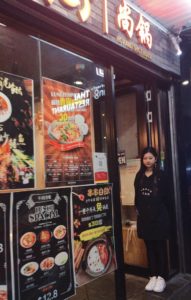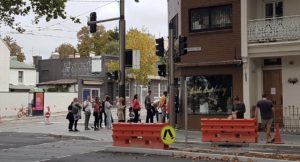
Story topic, angle, and narrative genre
Sydney Light Rail is a huge project which is constructing now. It is totally 12 kilometer and divided two branches that the CBD and South East Light Rail including 19 stops. One of the CBD routes contains main roads like from Circular Quay along George Street to Central Station, through the whole Surry Hills. The South East Light Rail is main constructing around Kensington and Kingsford, Randwick via Alison Road and High Street.
According to the NSW governments in 2012, it planned the construction of light rail started in October 2015 until at March 2019. However, because a series of complex reasons, it was planned to delay on March 2020.
At the beginning, the majority of citizen support this project because it originally will brings many benefits for local, like convenient transportation. But no matter what from the perspectives of government or local, they overlook several the negative influences from the light rail under the construction.
I would like to write the feature story about the issues caused by the Sydney Light Rail under construction. It will focus on the issues about the small business and residents that are located and lived near in the routes of light rail because of the constructing of Sydney Light Rail. Then the Sydney Light Rail brings negative influences in the small business and residents. What makes these influences, and the attitudes of retailers and locals for the Sydney Light Rail.
Publication and target user group
The target publication platform is The Sydney Morning Herald. Because the issues of Sydney Light Rail, it is an important topic for locals who will concern and focus. Also The Sydney Morning Herald is one of the main newspapers in Sydney which is very popular. And it is includes almost the local topics that Sydney local is interested, including it was reported delays about the Sydney Light Rail before.
In addition, this feature story will target on local Australian adults who is interested in the construction of Sydney Light Rail.
Ideas for multimedia, hypertext and interactivity
I will embed a series of photos about the light rail around its environment and surrounding restaurants. Also I will put the interviewing video or audio in the story. In addition, I will add the several hyper links including government planning, construction notifications, Small business assistance program and so on.
Sources of information:
At first, I would like to interview the manager of restaurant and store which is located around the George street and Surry Hills.
- Hot And Spicy House

Sources from: Shooting by me on 2019
Address: 704A George St
Call: 0449621119
- Bourke Street Bakery Surry Hills

Sources from: Goggle map by Martin Hampton on 2019
Address: 663 Bourke St, Surry HillsRemove featured image
Call: (02) 96991011
Website: https://bourkestreetbakery.com.au/
Question list:
How was your business before the construction of light rail?
Has your store or restaurant had a huge impact on business since the light rail was built?
If yes, how many the percentages of revenue is increasing or falling?
In addition, I will interview the customers of restaurant or store and residents.
Question list:
Are you concerned about the construction of the light rail?
Do you think the construction of the light rail has affected your life?
Do you think the light rail will affect your visit to this store or restaurant?





A trusted, legacy news publication like The Sydney Morning Herald cares about ‘the little guy’, so giving a ‘voice’ to small businesses that have suffered due to delays in light rail construction is a topic that would and has appeared in this paper.
What can you add to the conversation about the light rail, though? Perhaps you would figure this out upon interviewing the people affected by light rail construction, but would it not be fairer to also give the other side of the story? While it makes sense to look at ‘the little guy’, it may be fairer to contact the ‘other side’ and let them have their say. If you’re set on a human interest story, a slightly less-heard take would be to both the suffering of small businesses along light rail areas as well as those affiliated with its construction. How do the staffers, many not in ‘flash’ positions, in the state government, actually get treated – those who aren’t making any decisions but are dealing with the repercussions of these delays? How do the men and women working every day on the roads get treated?